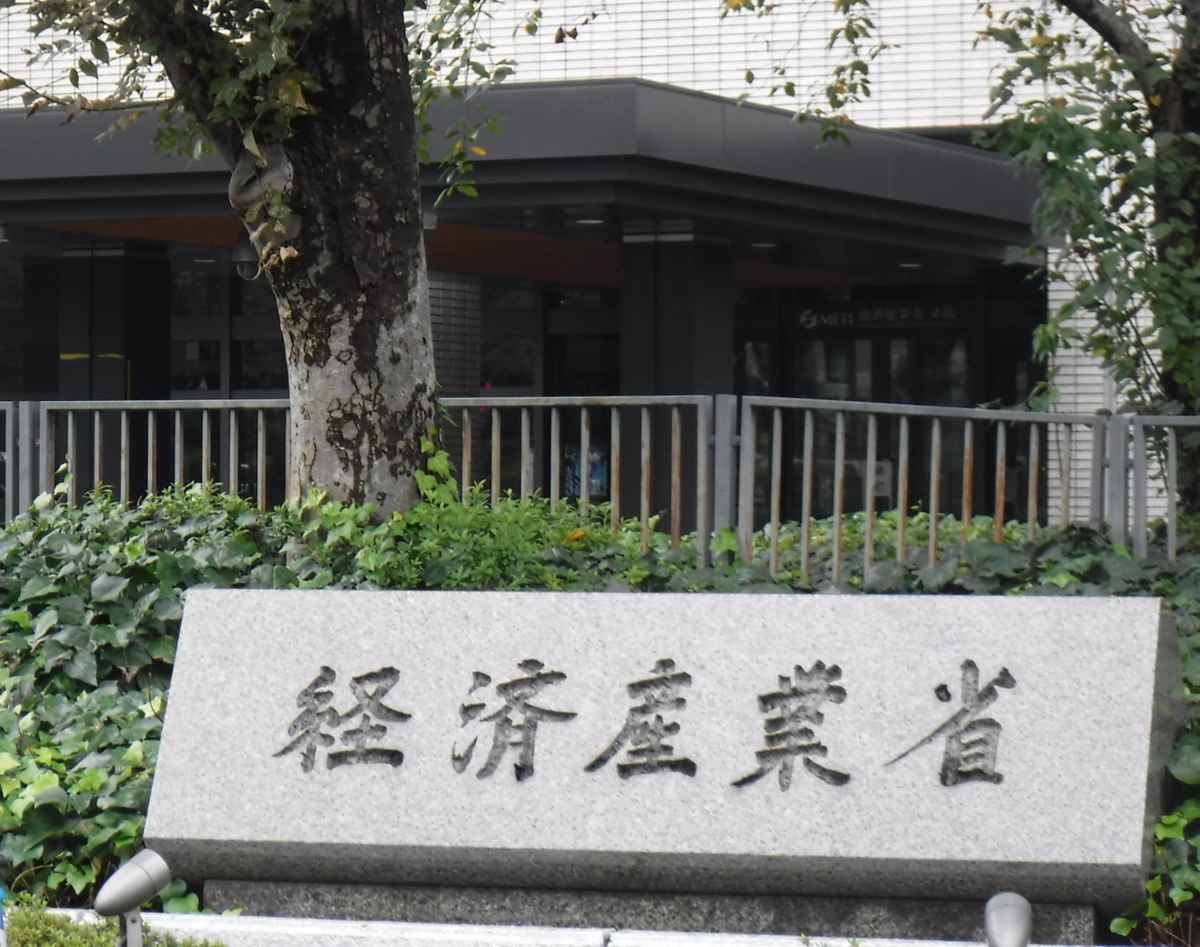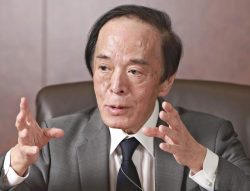Japanese Govt, Firms Plan to Develop Next-Generation Geothermal System; Public-Private Sector Council Launched

The Economy, Trade and Industry Ministry in Chiyoda Ward, Tokyo
20:00 JST, April 20, 2025
The Economy, Trade and Industry Ministry has established a liaison council of both the public and private sectors to accelerate the development of technologies for a next-generation geothermal power system.
Japan has numerous volcanoes and thus abundant geothermal heat. Therefore, there are high expectations for this promising source of renewable energy. The government plans to encourage private-sector companies to invest more in the field, with the aim of a new system being put into practical use in the early 2030s.
More than 70 companies, including ones in the fields of electric power, construction and finance, attended the first meeting of the liaison council on April 14.
Together, the members of the council aim to create a road map by the end of this year for the commercialization of next-generation technologies including closed-loop systems, which have been attracting attention worldwide.
The government is also considering measures to assist companies in fostering human resources and lowering costs.
In closed-loop systems, pipes are laid like a web and pass through underground layers of rock where temperatures are high. Water circulates inside the pipes and is converted into steam, which then rotates turbines and generates electrical power. Because closed-loop systems do not require an underground reservoir of hot water or steam to generate electric power, there are more locations where development is possible.
Chubu Electric Power Co. contributed capital to a startup in Canada and aims to begin the world’s first commercial operation of a closed-loop system in Germany.
Japan’s potential capacity of geothermal power is estimated to be the third largest in the world. However, conventional methods of geothermal power generation pose high risks for companies starting such businesses, because it would be difficult for them to turn a profit if their drilling efforts at underground reservoirs produced insufficient quantities of heated water or steam.
In addition, there have been many cases of candidate development sites in areas with hot spring resorts have faced opposition from local residents and entities over concerns that such development may adversely affect the quantity or quality of the hot spring waters. The amount of time needed to address this opposition has been an issue.
The public-private sector council will also discuss development of supercritical geothermal power generation, which utilizes heat sources located near magma at depths of 3,000 meters to 6,000 meters. If next-generation geothermal power systems are realized, the amount of available geothermal resources could be increased by four times or more.
Geothermal heat is a power source which can stably generate electric power irrespective of weather conditions. However, it only accounted for 0.3% of the nation’s total in fiscal 2023, less than solar power and wind power.
In the basic energy plan, which the Cabinet approved in February, the government presented an estimate of the expansion of renewable energy sources. In this, the government set a target of raising the proportion of geothermal power output to between 1% and 2% by fiscal 2040.
Top Articles in Business
-

Prudential Life Insurance Plans to Fully Compensate for Damages Caused by Fraudulent Actions Without Waiting for Third-Party Committee Review
-

Narita Airport, Startup in Japan Demonstrate Machine to Compress Clothes for Tourists to Prevent People from Abandoning Suitcases
-

Japan, U.S. Name 3 Inaugural Investment Projects; Reached Agreement After Considerable Difficulty
-

Toyota Motor Group Firm to Sell Clean Energy Greenhouses for Strawberries
-

Japan’s Major Real Estate Firms Expanding Overseas Businesses to Secure Future Growth, Focusing on Europe, U.S., Asia
JN ACCESS RANKING
-

Producer Behind Pop Group XG Arrested for Cocaine Possession
-

Japan PM Takaichi’s Cabinet Resigns en Masse
-

Man Infected with Measles Reportedly Dined at Restaurant in Tokyo Station
-

Israeli Ambassador to Japan Speaks about Japan’s Role in the Reconstruction of Gaza
-

Videos Plagiarized, Reposted with False Subtitles Claiming ‘Ryukyu Belongs to China’; Anti-China False Information Also Posted in Japan
























